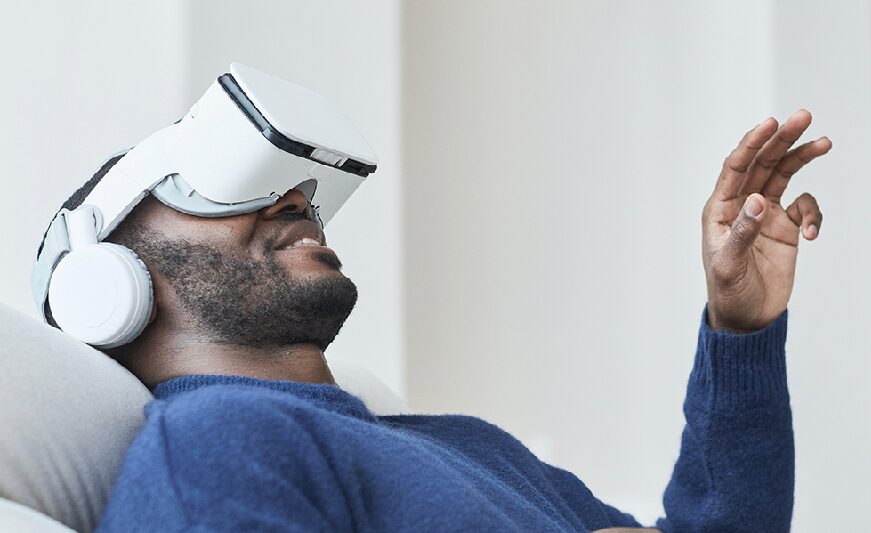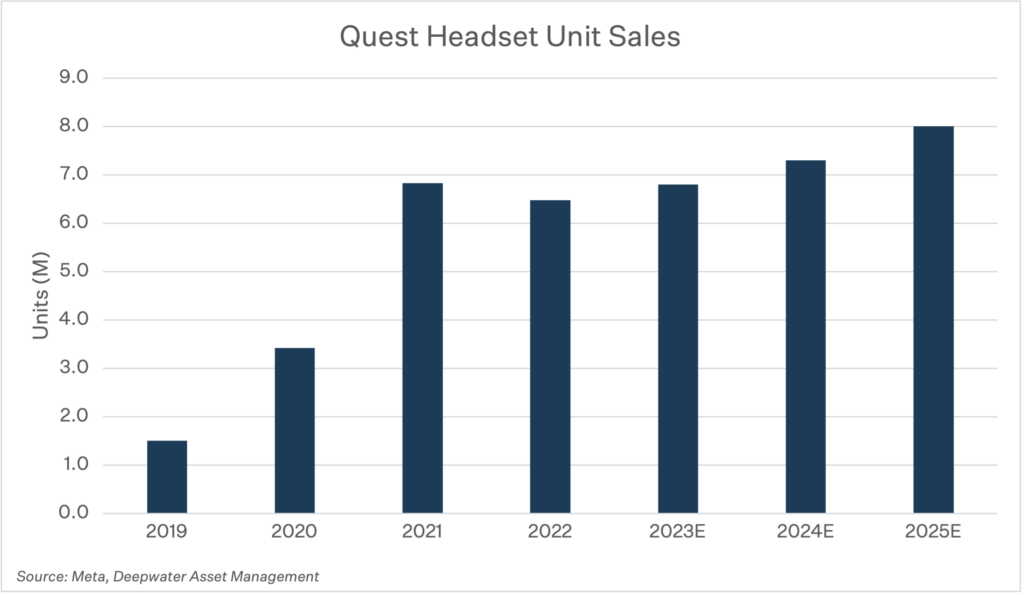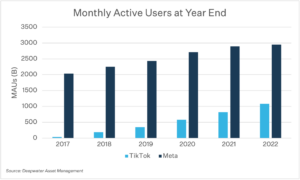AI vs. the metaverse
It’s hard to escape the AI headlines. The last time I remember this kind of excitement for a tech theme was in 1995 when talk of the internet’s potential was emerging. Anticipation and hype around the internet grew over the following five years, peaking in 2000. From an investor hype perspective, I believe AI is at the same place that the internet was in 1995. We’re starting to see share prices of companies like Nvidia and Microsoft move higher on AI’s potential, but the euphoria has not spread across the market as we saw 25 years ago. One of my favorite examples of internet euphoria was K-tel International, a thinly traded music distribution company whose shares in 1998 rose from $3 to $34 on the news that they were going to be selling records online. One comforting thought: many investors who witnessed the insanity of the dot.com bubble are still investors today, which makes it less likely Wall Street sees an AI bubble in the next five years.
While the metaverse won’t be as big of an investment opportunity as the internet was or AI will likely become, it will likely be as big of an opportunity as social or the cloud. The core question around the potential of the metaverse is simple: if you believe the smartphone will be the consumer computing device for the next thirty years, then there is no need for the metaverse. If you believe hardware advancements will give way to new experiences that consumers prefer over their phones, then the metaverse is the logical successor to the smartphone.



